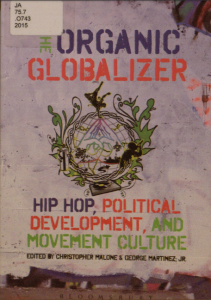“The Organic Globalizer: Hip Hop, Political Development, and Movement Culture,” edited by Christopher Malone and George Martinez, Jr., is a compilation of essays that explore the ways in which hip hop culture serves as an “organic globalizer.” In the opening chapter, Malone and Martinez define organic globalizer as a movement which “builds a network of grassroots institutions geared toward social justice and political participation both locally and globally” (Malone and Martinez, Jr., Read the rest.
Monthly Archives: April 2015
A little bit of Italy…in Puebla, Mexico
Southern Mexico is filled with beaches, pyramid ruins, great food, and great people. One would not expect a flair of Italian to go with it. There are very few towns in Mexico that are Italian-Mexican communities. But the town of Chipilo, which is located in the state of Puebla, is one of those unique towns. Read the rest.
How international is the library at the U of I?
Friday afternoon, April 10, the International and Area Studies Library (IAS) hosted “Embracing Internationalization at the University Library: Global Impact of Collections, Services and Expertise.” The event aimed to recognize the ways in which several members of and units in the University Library system support and create opportunities to serve an increasingly globalized patronage. Read the rest.
What Are International Cultural Promotion Organizations?
The diplomacy – both formal and informal – that occurs between and among “all nationally defined cultures” (Said 1993: 15) is much more of an art of give and take than an exact science. With so many factors of culture, language, and current events at play, there is never a hard and fast way to interact internationally. Read the rest.
Resource Spotlight: Endangered Languages of Indigenous Peoples of Siberia
According to a memo authored by the Institute of Ethnology and Anthropology of the Russian Academy of Science in 2005, at least one third of the 6,000 unique languages spoken today are endangered. Experts anticipate that these languages, nearly 2,000 of them, will be entirely replaced by dominant languages by the end of the 21st century. Read the rest.


